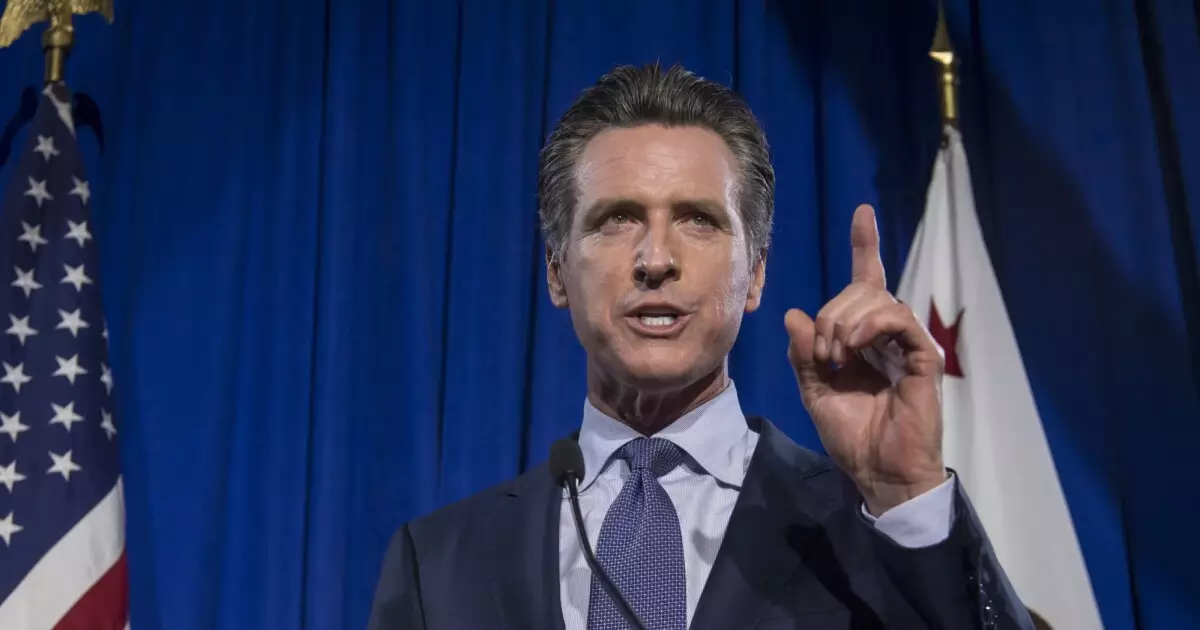Legal Action Against Budget Manipulations: The California School Boards Association Challenges Proposition 98

Proposition 98 is a landmark piece of legislation in California, designed to ensure a stable and predictable flow of funding to the state’s public schools and community colleges. Enacted in 1988, this constitutional amendment mandates that a certain percentage of the state’s budget be allocated to education each fiscal year. Its ongoing significance is underscored through its frequent references during the state budget process, where it is regarded as a measure of the state’s commitment to educational funding. The importance of Proposition 98 is now at the center of a legal battle involving the California School Boards Association (CSBA) and the state of California, specifically Governor Gavin Newsom’s administration.
The legal action initiated by the CSBA is rooted in the belief that a recent trailer bill within the 2024 Education Omnibus Budget violates the constitutional guarantees outlined in Proposition 98. The trailer bill, which is essentially an ancillary piece of legislation that provides adjustments or clarifications to the main budget bill, is being criticized for authorizing budget maneuvers that the CSBA argues undermine the integrity of Proposition 98.
In their lawsuit, filed by the Education Legal Alliance, CSBA asserts that the state has sidestepped its educational funding obligations through provisions that divert funds away from the originally intended educational channels. As the state grapples with fiscal challenges, including a budget deficit, Governor Newsom’s administration has been accused of employing a strategy that relies on dubious financial tactics, such as borrowing from the general fund, thus alienating educational funding from its rightful place in the budget.
Implications for School Funding
The implications of this budgetary maneuvering are far-reaching. CSBA’s arguments suggest that if upheld, these actions could set a dangerous precedent, allowing future administrations to manipulate or underfund education by leveraging loopholes in the law. The lawsuit reflects the broader concerns regarding how fluctuations in state revenues and budget cycles can destabilize the funding landscape for schools. If the court supports CSBA’s claims, it could reinforce the constitutional requirements of Proposition 98, ensuring a minimum funding guarantee for public education irrespective of the state’s fiscal condition.
Albert Gonzalez, CSBA President, raised a critical point regarding the sanctity of the state constitution, emphasizing, “The California Constitution cannot be discarded for convenience or dismissed at the whim of the Department of Finance.” This perspective underscores the tension between fiscal responsibility and the obligation to provide adequate resources for education, framing the lawsuit as a critical defense of voters’ intentions.
In response, the California Department of Finance has issued a rebuttal, maintaining that their budgetary practices and determinations comply with constitutional mandates. Officials from the department have expressed confidence that the court will uphold their interpretation of Proposition 98, asserting that the trailer bill was developed within legal and constitutional parameters. They argue that CSBA misinterprets the fiscal realities facing the state, particularly regarding education funding in a context where resources are limited.
The legal discord is not just a reflection of hindsight; it highlights systemic issues within the budgetary framework and how education funding is negotiated. The Department of Finance’s response contends that the methods utilized for calculating and allocating education funds are both traditional and legally sound, indicating an expectation that the judicial system will agree with their stance.
As this lawsuit plays out, it serves as not only a crucial juncture for the allocation of educational resources but also as a catalyst for broader discussions on the fiscal health of California and how budgetary decisions are made. The stakes are high, as the outcomes could define not only the funding landscape for the coming years but also reshape how educational funding is approached in the state moving forward.
The case poses vital questions about the relationship between fiscal policy and education. Advocates for equitable funding rightly argue that consistent and predictable resources are the bedrock of student success and well-being. Meanwhile, defending the integrity of the state constitution within the fiscal domain may serve as a precedent against future budgetary adjustments that could threaten educational funding in California.
The lawsuit filed by the CSBA against the state of California highlights the vital intersection of education, law, and fiscal policy. As it unfolds, this case could establish critical legal precedents to protect Proposition 98, ensure adequate funding for public schools, and reinforce the principle that voter-approved budgets should not be casually altered to address political or financial expediency. The complexities of state governance and the implications for students’ futures are now in the hands of the judicial system, with their decision poised to resonate across California’s educational landscape.





